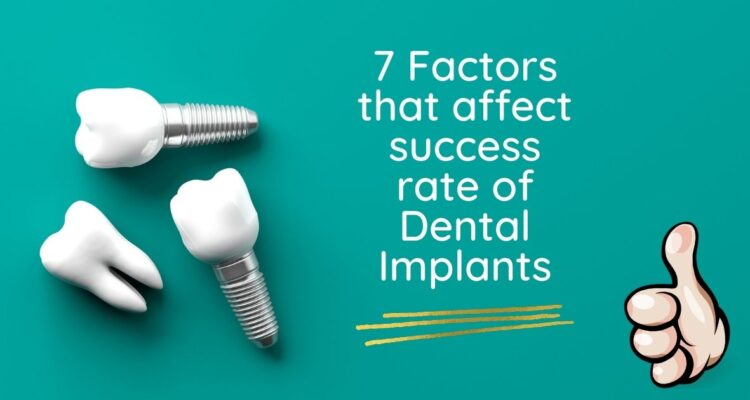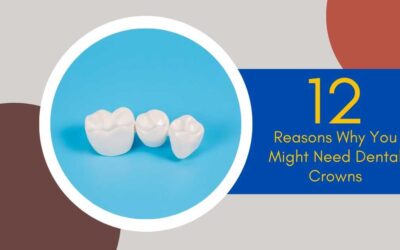Dental implant procedure is one of the dental procedures that generally enjoy a very high success rate of over 98%. Despite the fact that it enjoys a high success rate, there are many factors that influence and affect the success rate of the dental implants. Here are 7 factors we have collated that influence the success rate of your dental implants.
- Insufficient Jaw bone – As we age, the jaw bone recedes. They can also recede due to osteoporosis. This condition might occur when bone density decreases. They can also recede due to other medical condition like arthritis. Without enough healthy jawbones, the dentist cannot place the dental implant of your choice. Though these days, even with insufficient jawbone, you have advanced implant types that can be placed, the cost of them will be a factor. Even for placing such advanced implant types, the presence of a minimal jawbone threshold is needed for a higher success rate.
- Underlying gum diseases – If you have a history of gum diseases there is a risk of getting these gum diseases once again after getting a dental implant. This happens only when your gum disease has been neglected. However, your dentist will anyways make sure that your gum diseases are treated prior to giving you a dental implant. In order to avoid contracting peri-implantitis, a condition of infection around your dental implant, your dentist might recommend treatment to gum disease first and then getting dental implant. This might cost you extra time and money but it is worth the wait.
- Underlying medical conditions – Conditions like diabetes can affect the outcome of your dental implant. These days it is very possible that even if you have diabetes you can get a dental implant provided you have been keeping your diabetes under control. If you have uncontrolled diabetes, the chances of less success rate is very much possible.
- Poor oral hygiene – If the person does not have the habit of maintaining good oral hygiene, that may be a factor that can act as a deterrent. Maintaining proper oral hygiene after you get a dental implant is paramount. Good oral hygiene can prevent peri- implantitis, a condition of infection around your dental implant.
- Staging – Some studies have shown that staging the implant surgery well after the extraction wound has healed has brought better success rates. However not everyone carries the same risk and your dentist knows it better. Many factors like age, underlying medical conditions, dental conditions, etc., play a role and hence go by what your dentist says. If your dentist feels that your fit conditions can take in dental implant immediately after a tooth removal, go for it.
- Diet – The more nutritious food we eat after getting dental implant plays an important role in healing as well as better osseointegration. Having soft food for a couple of weeks after getting dental implant and not chewing the food in the side where dental implant has been placed can increase the success rate of your dental implant.
- Smoking – Proper healing is necessary for better integration of dental implant. Since smoking interferes with healing process, it is better to not smoke until the healing process is complete.




